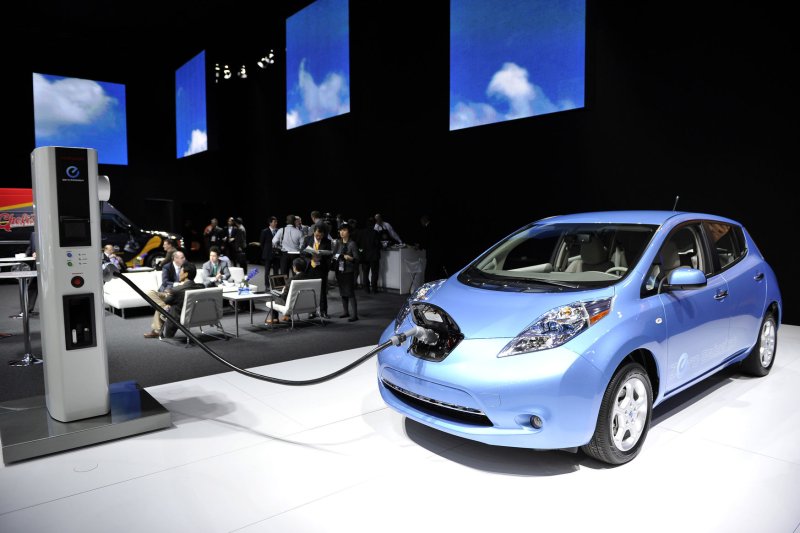Though more EVs are on the road, there are still concerns about gaps in charging points that could leave commuters idle. File photo by Brian Kersey/UPI |
License Photo
Feb. 21 (UPI) -- After a forecast for gains in deployment, feedback from a forum by a state public service commission found range anxiety for electric vehicles was a concern.
British energy company BP reported in an annual forecast that it expected 180 million electric vehicles on the world's roads by 2035. That's expected to crimp global oil demand in the coming years as about 30 percent of total miles driven in 2040 will be fueled by electricity.
From Michigan, one of the leading domestic centers for the automotive industry, a technical conference held by the state Public Service Commission found concerns in 2018 required forward-thinking mitigation efforts to address range anxiety, accessibility and public charger visibility.
Last year, the governors of Colorado, Idaho, Montana, Nevada, New Mexico, Utah and Wyoming signed a memorandum of understanding that envisions an Intermountain West Electric Vehicle Corridor "that will make it possible to seamlessly drive an electric vehicle" across the major transportation corridors of the parties involved.
Among other things, the agreement aimed to address range anxiety by coordinating electric charging station locations so there's less overlap but enough frequency to keep vehicles charged.
A report from The University of Michigan's Transportation Research Institute, co-authored by Brandon Schoettle and Michael Sivak, found both battery-powered and plug-in hybrids are at the point where they're capable of meeting the daily travel needs of most U.S. drivers. Recent improvements in range and charging times, their report read, has led to wider acceptance and reduced range anxiety already.
The U.S. Energy Department's National Renewable Energy Laboratory estimates there are around 40,000 actual plugs available nation-wide for electric vehicles. That number supports the more than 500,000 plug-ins on the road in the United States, which accounts for about a quarter of the global market.
BP last month invested $5 million in FreeWire Technologies, a U.S. company that makes charging stations for electric vehicles. BP's plan is to bring the charging units to retail service stations in the United Kingdom and Europe throughout the year.
In November, German utility company E.ON said that, with $11.6 million in funding from the European Commission, it would work with service provider CLEVER to link Norway to Italy with a network of 180 charging stations for electric vehicles.
Charging stations will be spaced every 90 miles or so across Italy, France, Germany, Denmark, the United Kingdom, Sweden and Norway during the next three years.















